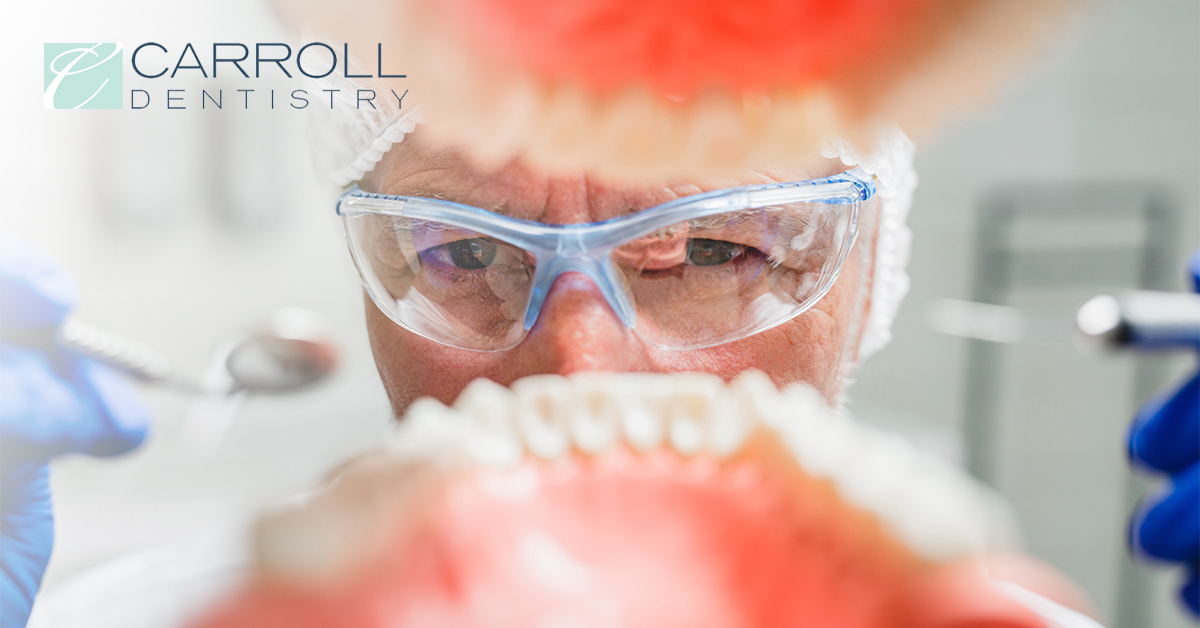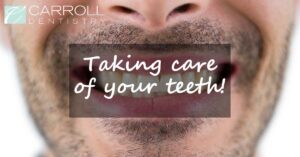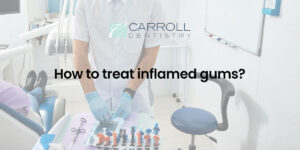In this text, we tell you about how dental caries develops and how to treat it properly. We also list some measures you can take to prevent this from happening. Enamel is the protective outer layer of our teeth. Bacteria in our mouths use the sugar we eat to create acids that can deplete this protective layer, creating a cavity. Once the enamel disappears, it no longer grows. That’s why your dentist and dental hygienist always tell you to brush your teeth with fluoride toothpaste and clean between your teeth! In the following lines, we bring you information on how caries occurs, and how you can prevent it?
What is a cavity?
Caries is a hole in your tooth. The cavity at an early stage may look like a white spot, which can be cured. It will look like a brown or black spot over time. Cavities can be small or large. Caries can form in many places, but they often form on the tips of your teeth where you bite and between your teeth where food gets stuck. The best way to prevent serious health problems is to prevent caries, which can cause many other problems throughout the body.
The biggest danger when it comes to tooth decay is that bacteria get out of the cavity in the gums where it can create an infection.
Dental infections can be serious and life-threatening if left untreated. If you notice the following symptoms, you must contact your dentist:
- Pain in the mouth
- Bad taste in the mouth
- Swelling on the face or mouth
- Redness in or around the mouth
Who is at risk for tooth decay?
Regardless of a person’s age, any person who has their own teeth can be at risk for dental caries. The following items are also a risk:
- You have cracked or cracked teeth
- Take medications that cause dry mouth
- Have had head or neck radiation therapy
- Snack between meals
- Eat sugary foods and drinks
- Have a personal and / or family history of caries
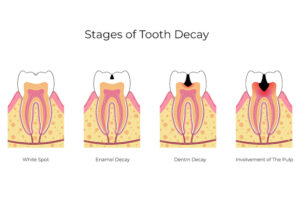
Caries treatment
Once your dentist identifies the type of tooth decay you have, they will recommend a treatment option to remove the tooth decay and restore your smile. The treatment procedure depends on the size of the problem, ie how big the dental caries is and how long it should be treated. The following items can help you treat and prevent tooth decay:
Fluorine treatments
Treatments come in the form of a liquid, gel, foam or varnish that is brushed directly on the teeth. Fluoride can help restore enamel, and in the very early stages of tooth decay can even reverse decay.
Stay hydrated
Drinking plenty of water will help keep your mouth moist and prevent the formation of extra cavities. When your mouth is very dry, it allows the accumulation of bacteria that can cause tooth decay.
Rinse with salt water
Salt water has been used for years to treat infections and wounds. It is effective due to its antiseptic properties. As soon as you feel caries appear, spray with salt water to slow its spread. Salt water can also help destroy caries-causing bacteria.
Taking vitamin D
When you are a child, getting the right amounts of calcium and vitamin D is key to keeping your bones strong and growing. As an adult, taking extra vitamins will not necessarily help your teeth but can strengthen them through acting on your entire body. In addition, your teeth develop when you are really young. As adults, they are fully formed.
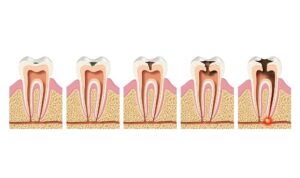
Sugar-free gum
Sugar-free chewing gum will not help you get rid of tooth decay, but it provides other benefits – including keeping away from snacks and carbohydrates.
As caries develops, bacteria and acid continue to pass through your teeth, moving. Because there is no room inside the tooth for the swelling to expand, the nerve is compressed, causing pain.
If you are particularly sensitive to tooth decay due to your health condition – your dentist may recommend special antibacterial mouthwashes or other treatments to reduce harmful bacteria in your mouth.

